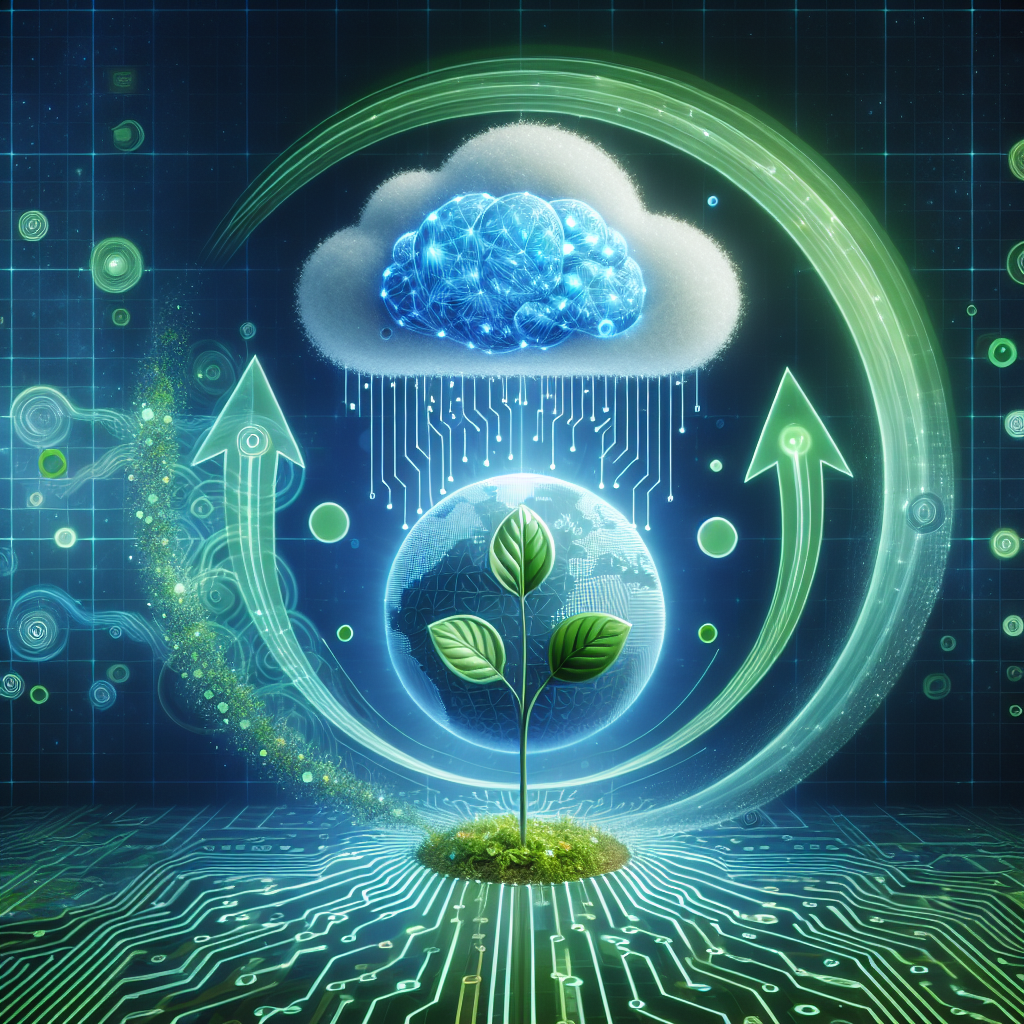The Role of AI Software in Sustainable Development
Artificial Intelligence (AI) is revolutionizing the way we live and work, and its potential impact on sustainable development is significant. AI software has the capability to analyze massive amounts of data and make intelligent decisions in real-time, which can help organizations and governments make more informed choices that promote sustainability. From reducing energy consumption to optimizing resource allocation, AI software is playing a crucial role in advancing sustainable development.
One of the key areas where AI software is being used to promote sustainability is in the field of energy management. By analyzing data from smart meters, sensors, and other sources, AI algorithms can identify patterns of energy usage and suggest ways to reduce consumption. For example, AI software can optimize heating and cooling systems in buildings to minimize energy waste, or recommend the use of renewable energy sources based on real-time data.
In agriculture, AI software is being used to improve crop yields and reduce the use of pesticides and fertilizers. By analyzing weather patterns, soil conditions, and other variables, AI algorithms can provide farmers with recommendations on when and where to plant crops, as well as how to manage pests and diseases more effectively. This not only leads to higher yields and lower costs for farmers, but also helps to protect the environment by reducing the use of harmful chemicals.
In transportation, AI software is helping to reduce congestion and emissions by optimizing traffic flow and routing. By analyzing data from sensors, cameras, and other sources, AI algorithms can predict traffic patterns and adjust signal timings to minimize delays and reduce fuel consumption. AI-powered navigation apps can also suggest the most fuel-efficient routes for drivers, further reducing emissions and promoting sustainable transportation.
AI software is also playing a role in waste management by optimizing collection routes and recycling processes. By analyzing data on waste generation and disposal, AI algorithms can help municipalities and companies improve their waste management practices, leading to reduced landfill waste and lower greenhouse gas emissions. AI-powered sorting systems can also separate recyclable materials more efficiently, increasing recycling rates and reducing the environmental impact of waste disposal.
In the realm of water management, AI software is being used to monitor water quality, predict droughts and floods, and optimize water distribution systems. By analyzing data from sensors, satellites, and other sources, AI algorithms can identify potential risks to water supplies and suggest strategies to mitigate them. AI-powered irrigation systems can also optimize water usage in agriculture, reducing waste and conserving this precious resource.
Overall, AI software is a powerful tool for promoting sustainable development by enabling organizations and governments to make smarter decisions based on data-driven insights. By harnessing the power of AI, we can address some of the most pressing challenges facing our planet, from climate change to resource depletion.
FAQs:
Q: How is AI software different from traditional software?
A: AI software uses machine learning algorithms to analyze data and make intelligent decisions, while traditional software typically follows pre-defined rules and instructions.
Q: Can AI software replace human decision-making entirely?
A: While AI software can automate many tasks and provide valuable insights, human judgment and oversight are still essential in many areas.
Q: Is AI software expensive to implement?
A: The cost of implementing AI software can vary depending on the complexity of the project and the level of customization required. However, the long-term benefits of using AI software often outweigh the initial investment.
Q: What are some potential risks of using AI software for sustainable development?
A: Some potential risks include data privacy concerns, algorithmic bias, and job displacement. It is important to address these risks proactively and ensure that AI software is used responsibly.
Q: How can organizations and governments ensure that AI software is used ethically?
A: Organizations and governments can establish clear guidelines and regulations for the use of AI software, conduct regular audits and assessments, and involve stakeholders in decision-making processes to ensure ethical use of AI.

